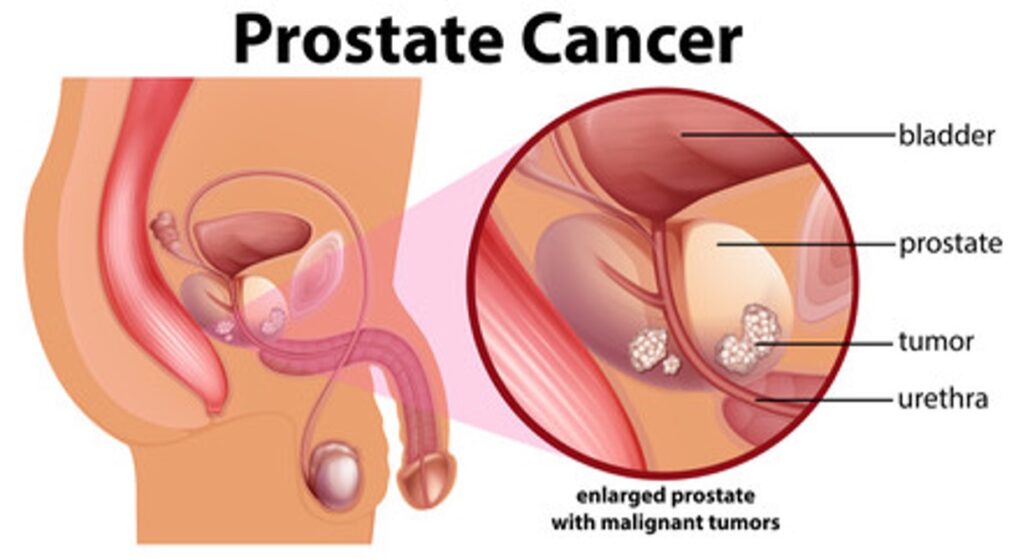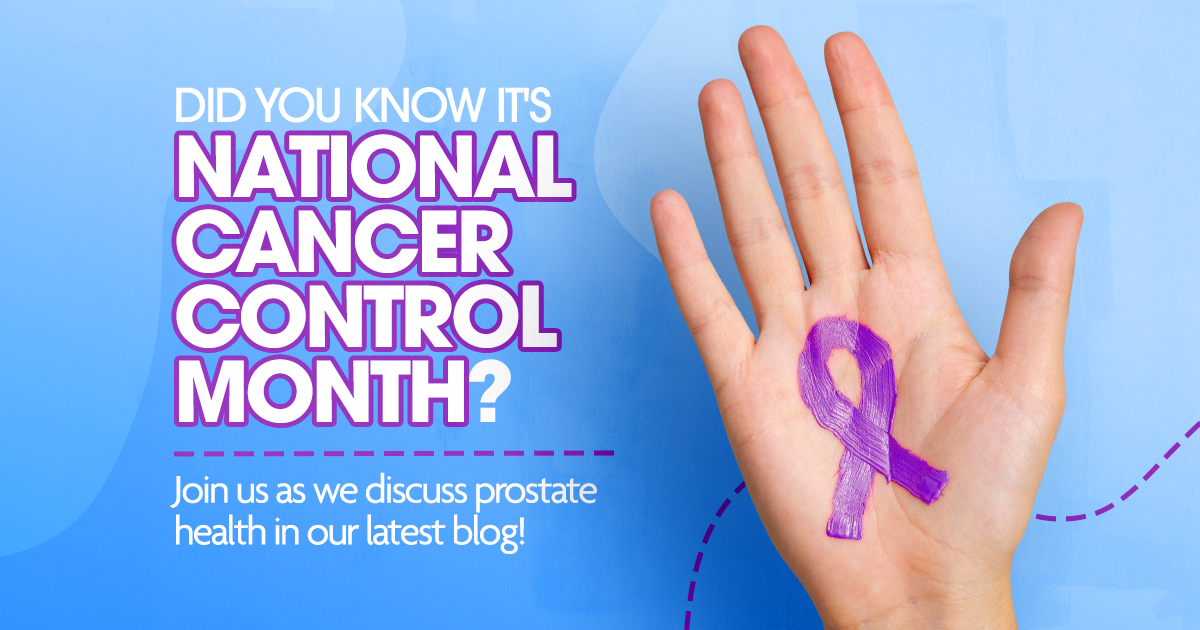Cancer is the second leading cause of death in the United States and has likely touched someone we all know. As we make our way through National Cancer Control Month, prostate health is an important area of focus. Prostate cancer is a very common type of cancer that, if caught early, is treatable. Read our blog below as we discuss prostate cancer, how it differs from other prostate concerns, and how seeing a urologist regularly is an important tool in early detection.
National Cancer Control Month – Serving a Purpose
April marks the beginning of National Cancer Control Month, a month-long initiative designed to raise awareness of the measures that can be taken to reduce cancer’s impact on individuals and communities. While progress has been made in understanding cancer, it remains a leading cause of death worldwide, making it especially important to educate and spread awareness this month and throughout the year.
The Prevalence of Prostate Cancer
Did you know prostate cancer is the second most diagnosed cancer in men? This type of cancer affects the prostate, a small walnut-sized gland located below the bladder and in front of the rectum. One of the prostate’s leading roles is to produce fluid for ejaculation, but it also creates male hormones. Prostate cancer risk factors include everything from age, obesity, family history of prostate cancer, ethnicity to diet, and lifestyle choices. So, it’s important to stay mindful and be proactive about your health.
Common symptoms can include difficulty urinating, feeling like your bladder never fully empties, frequent urges to urinate at night, pain or burning during urination, and blood in the urine or semen. According to data from the Centers for Disease Control and Prevention (CDC), about 1 out of 9 men will be diagnosed with prostate cancer in their lifetime—making it essential for males to get regular screenings from their healthcare provider.

Enlarged Prostate Vs. Prostate Cancer
While there are similarities between an enlarged prostate and prostate cancer, they are two distinct medical conditions. An enlarged prostate is a benign condition caused by the natural aging process in men. There may be an increase in frequency, urgency, and difficulty with urination associated with prostate enlargement, but there is usually not any cancerous cell growth involved. Prostate cancer is a malignant condition involving abnormal cell growth within the prostate. It may also cause urinary issues, but in a different way than an enlarged prostate does. It is important to note that enlarged prostate and prostate cancer can occur simultaneously. Therefore, it is recommended to seek medical attention for any unusual symptoms or concerns to prevent them from progressing.
How A Urologist Can Help
Men with prostate cancer often have no signs or symptoms until the cancer has progressed. Regular screening and early detection are key when it comes to successful treatment. Our providers recommend that all men between the ages of 55 and 69 be regularly screened by a urologist for prostate issues. Urologists are highly specialized in all things related to the urinary system – bladder, kidneys, ureter, urethra, and the reproductive system. If you are concerned about ongoing issues related to the urinary system, an appointment with a urologist may be warranted.

So be proactive about your prostate health! Help us spread awareness of the importance of regular screenings and a healthy lifestyle. Call us at (214) 580-2266 or visit our website for more information about our services or to schedule an appointment!
Resources:

